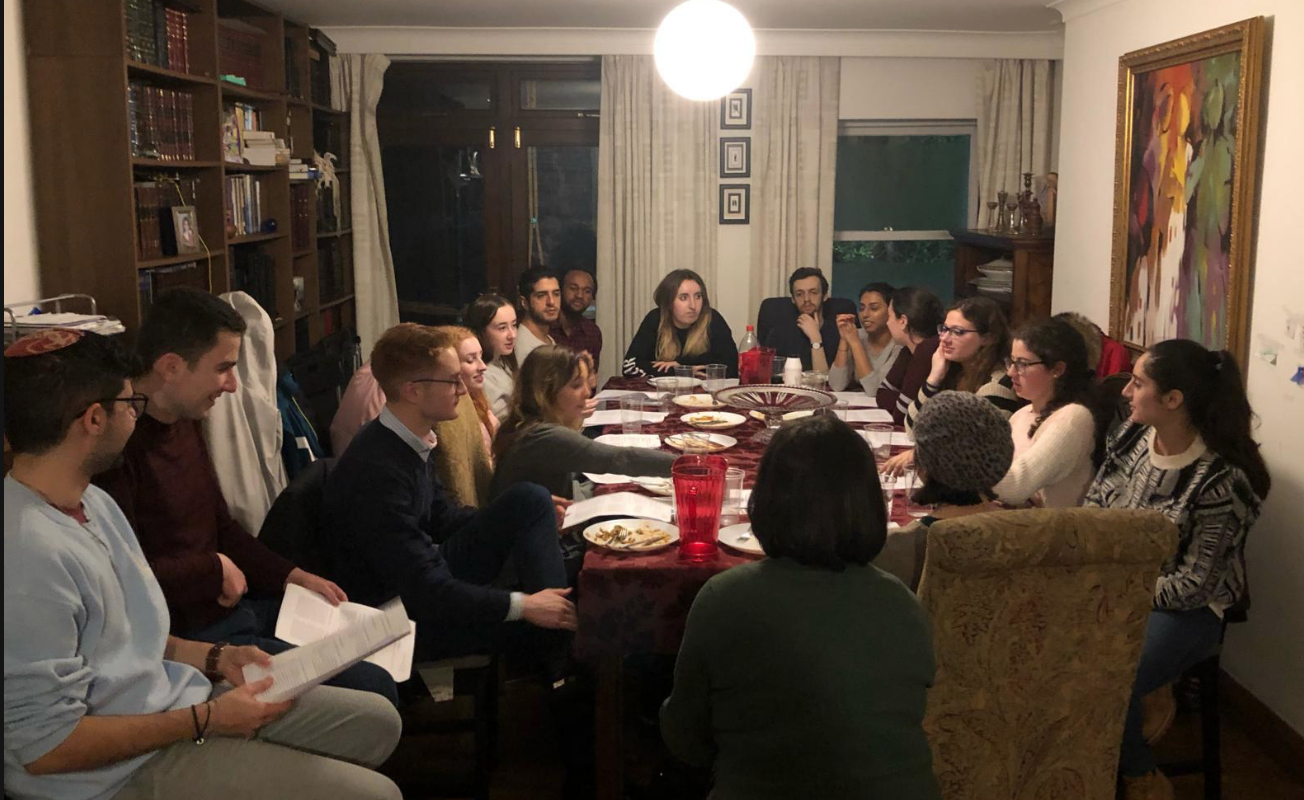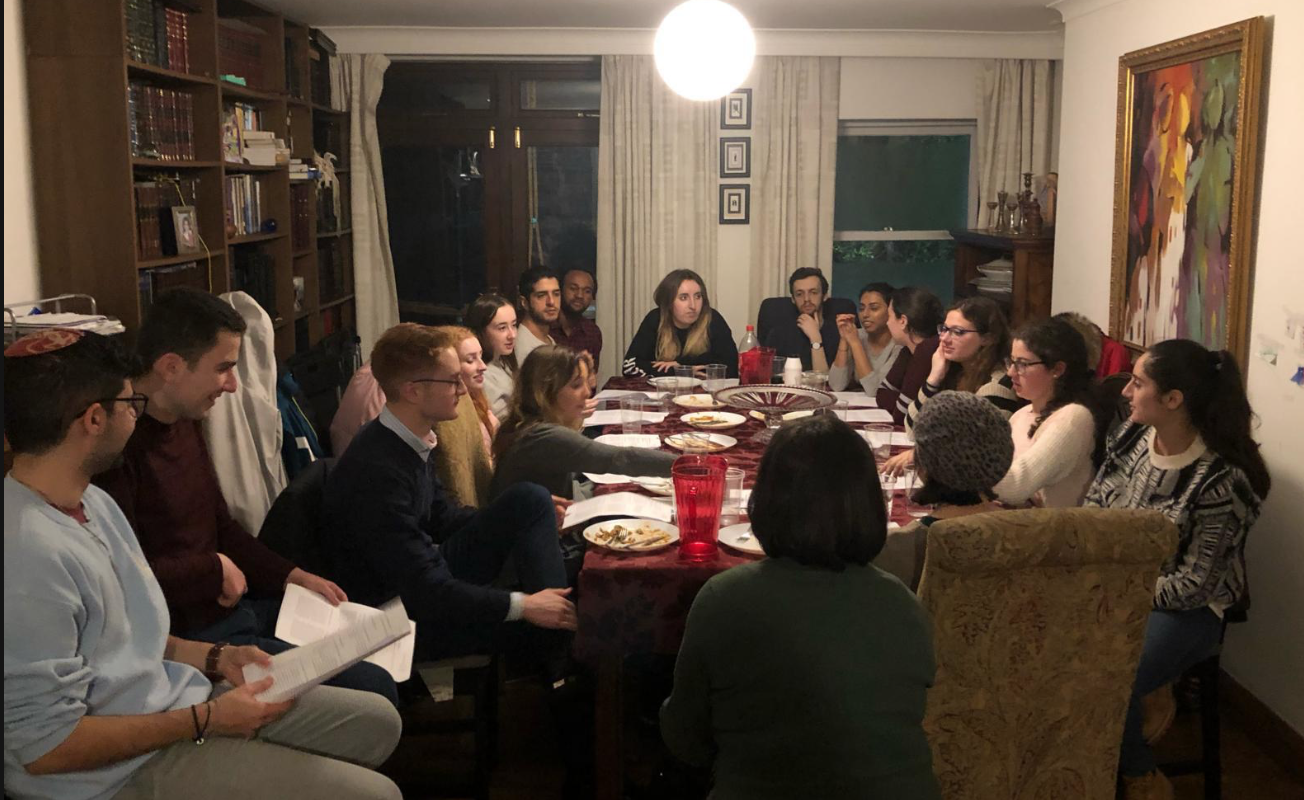By, Issie Levin, 2nd Year English
As someone whose Judaism has been ingrained in their everyday for the past 19 years of my life, it would be fair to say that The Community Security Trust (more commonly known as CST), has been a constant. Come rain or shine, I can assure you that CST’s 2000 trained volunteers, alongside their 80 members of full-time staff, will be out on the streets guarding Jewish schools, university Jewish societies and synagogues across the country.
Anti-Muslim hate or Islamophobia must be reported in.
— TellMAMAUK (@TellMamaUK) December 27, 2019
We know that many who use social media, do not report in the hate they receive.
We can assist in many ways & know that you are not alone. Much of the anxiety that some feel is because they feel alone.
We are here for you. pic.twitter.com/DA6cmUcOel
When witnessing a group of school children walking down the road to a local synagogue, you should not have to see them guarded by both police and CST. Yet, in my hometown of Leeds, this is a devastating reality. On Sunday the 29thof December Synagogues and Kosher restaurants had conspiracy theories graffitied onto their battered walls.
During my reign as Vice President of Bristol JSoc dedicated CST staff would regularly make the 2 hour-trek from London to ensure Jewish students felt safe and protected on campus. They helped support us, investigate incidences of anti-Semitism and train countless students in self-defence. Heart-breaking but necessary.
Geplaatst door University of Bristol Interfaith Forum op Woensdag 20 februari 2019
You may be thinking that this is somewhat of an overreaction? Yet, the repetitive and hateful attacks against religious minorities have proved time and time again that this service is unfortunately necessary. In 2018 alone CST received 25 reports of anti-Semitism on campus. Thankfully, for us, CST is always there.
I’m ashamed to say it is only when disaster strikes that the wonderful work organisations like CST do, come to light.
This acts as a plea not only to listen and respect each other for our differences
Their relentless commitment to tracking and reporting the rise of anti-Semitism manifests itself in many a form, whether it be running educational sessions on campus, to working with politicians and the police force to develop policy and training methods.
If you see any antisemitic, Islamaphobic or racist graffiti, please report to police on 101 and @CST_UK on 0800 0323263 or @TellMamaUK 0800 4561226. We can all help in stamping out hate from our society.
— Mike Katz (@mikekatz) December 29, 2019
In fact, it was only a short while ago, having rooted around CST’s website, I discovered some of the inspiring projects CST has harboured with organisations protecting other religious groups.
I was proud to hear of the collaborative work with Tell MAMA (Measuring Anti-Muslim Attacks). This public service simultaneously supports victims of anti-Muslim hate, while measuring and monitoring anti-Muslim incidents across the country.
1/3 A number of students have contacted us, concerned about this series of antisemitic graffiti in Hampstead and the surrounding area.
— Union of Jewish Students (@UJS_UK) December 29, 2019
If you have any information or concerns please do not hesitate to contact CST on the details below. https://t.co/ZcRpq2P0Nn
My ignorance was unveiled in discovering the dark realities of 2018, where spikes in anti-Muslim and anti-Islamophobic reports followed ‘Punish a Muslim’ day, as well as during the aftermath of Boris Johnson’s column, where he referred to Muslim women as ‘letter boxes’ and ‘bank robbers’ in his column. Sadly on campus anti-Muslim hatred is on the rise. In 2015 in the University of Birmingham “kill Islam before it kills you” was scrawled outside student accommodation. One Muslim women was assaulted in Kings College London in 2016 during Islamophobia awareness week and at the University of Leicester anti-Muslim graffiti was found sprayed over a banner advertising an Eid Prayer. This does not strike too far from CST’s report laying out the influence of Labour Party online networks the rise of anti-Semitism.
It is the act of unity which allow these groups to thrive. Through campaigns with organisations such as Gallop (an LGBTQ+ anti-violence charity) and Stonewall (who campaign on behalf of the LGBTQ+ community) these organisations show a zero-tolerance policy against hate speech of any form.

When attending a Jewish Society event recently, I came across a report lying around. This document was jointly produced by CST, Tell Mama and various government agencies. The ‘Hate Crime: A Guide for Those Affected’ was launched in 2017, and is widely distributed in police stations across the country, used for the victims of any hate crime. This collaboration is certainly a testament to the power minorities have when aligning together in fighting hatred.
By no means do I claim to be an expert or representative of either of these organisations, or the extremely complex and devastating issues they mean to tackle. Yet from the outside, I hope to encourage people to appreciate the great and tiresome efforts respective groups put in to ensure our communities are kept safe.
Woke up to messages that the synagogue was daubed with swastikas and 9/11 blame last night and the whole area covered in anti Jewish graffiti. If a society goes this bad there’s really no hope for anyone else. Germany 1930 ? Russia 1905? Spain 1478?York 1189? You’re next. pic.twitter.com/7JyKPMMRPw
— Tracy-Ann Oberman (@TracyAnnO) December 29, 2019
Everyday a person’s religion results in their persecution, which in some areas of the world, goes underreported and unnoticed. To say thank you for the work organisations such as CST and Tell MAMA do in The UK is simply not enough.
This acts as a plea not only to listen and respect each other for our differences, but a plea to learn and work collaboratively in order to eliminate hate in all its forms. Please take the time to look into these issues, to mirror the collaborative efforts of these inspiring organisations. An action as simple as attending an Islamophobia Awareness Month event or a Multifaith event at university, or just having a closer look into the work these organisations put in, will ultimately make a greater, collaborative difference.
Have you done any interfaith work this year?









